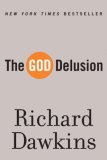Summary | Excerpt | Reviews | Beyond the Book | Readalikes | Genres & Themes | Author Bio

Critics' Opinion:
Readers' Opinion:
First Published:
Sep 2006, 416 pages
Paperback:
Jan 2008, 464 pages
 Book Reviewed by:
Book Reviewed by:
BookBrowse Review Team
Buy This Book
Less abject but more shocking was the letter from the Founder of
the Calvary Tabernacle Association in Oklahoma:
"Professor Einstein, I believe that every Christian in America will answer you, 'We will not give up our belief in our God and his son Jesus Christ, but we invite you, if you do not believe in the God of the people of this nation, to go back where you came from.' I have done everything in my power to be a blessing to Israel, and then you come along and with one statement from your blasphemous tongue, do more to hurt the cause of your people than all the efforts of the Christians who love Israel can do to stamp out anti- Semitism in our land. Professor Einstein, every Christian in America will immediately reply to you, 'Take your crazy, fallacious theory of evolution and go back to Germany where you came from, or stop trying to break down the faith of a people who gave you a welcome when you were forced to flee your native land.'"
The one thing all his theistic critics got right was that Einstein
was not one of them. He was repeatedly indignant at the suggestion that he
was a theist. So, was he a deist, like Voltaire and Diderot? Or a pantheist,
like Spinoza, whose philosophy he admired: 'I believe in Spinoza's God who
reveals himself in the orderly harmony of what exists, not in a God who
concerns himself with fates and actions of human beings'?
Let's remind ourselves of the terminology. A theist believes in a
supernatural intelligence who, in addition to his main work of creating the
universe in the first place, is still around to oversee and influence the
subsequent fate of his initial creation. In many theistic belief systems, the
deity is intimately involved in human affairs. He answers prayers; forgives or
punishes sins; intervenes in the world by performing miracles; frets about
good and bad deeds, and knows when we do them (or even think of doing
them).
A deist, too, believes in a supernatural intelligence, but one whose
activities were confined to setting up the laws that govern the universe in the
first place. The deist God never intervenes thereafter, and certainly has no
specific interest in human affairs.
Pantheists don't believe in a supernatural
God at all, but use the word God as a nonsupernatural synonym for Nature,
or for the Universe, or for the lawfulness that governs its workings.
Deists
differ from theists in that their God does not answer prayers, is not interested
in sins or confessions, does not read our thoughts and does not intervene
with capricious miracles. Deists differ from pantheists in that the deist God is
some kind of cosmic intelligence, rather than the pantheist's metaphoric or
poetic synonym for the laws of the universe. Pantheism is sexed-up atheism.
Deism is watered-down theism.
There is every reason to think that famous Einsteinisms like 'God
is subtle but he is not malicious' or 'He does not play dice' or 'Did God have
a choice in creating the Universe?' are pantheistic, not deistic, and certainly
not theistic. 'God does not play dice' should be translated as 'Randomness
does not lie at the heart of all things.' 'Did God have a choice in creating the
Universe?' means 'Could the universe have begun in any other way?' Einstein
was using 'God' in a purely metaphorical, poetic sense. So is Stephen
Hawking, and so are most of those physicists who occasionally slip into the
language of religious metaphor. Paul Davies's The Mind of God seems to
hover somewhere between Einsteinian pantheism and an obscure form of
deism – for which he was rewarded with the Templeton Prize (a very large
sum of money given annually by the Templeton Foundation, usually to a
scientist who is prepared to say something nice about religion).
Let me sum up Einsteinian religion in one more quotation from
Einstein himself: 'To sense that behind anything that can be experienced
there is a something that our mind cannot grasp and whose beauty and
sublimity reaches us only indirectly and as a feeble reflection, this is
religiousness. In this sense I am religious.' In this sense I too am religious,
with the reservation that 'cannot grasp' does not have to mean 'forever
ungraspable'. But I prefer not to call myself religious because it is
misleading. It is destructively misleading because, for the vast majority of
people, 'religion' implies 'supernatural'. Carl Sagan put it well: '. . . if by
"God" one means the set of physical laws that govern the universe, then clearly
there is such a God. This God is emotionally unsatisfying . . . it does not make
much sense to pray to the law of gravity.'
Copyright © 2006 by Richard Dawkins. Reprinted by permission of Houghton Mifflin Company





The Flower Sisters
by Michelle Collins Anderson
From the new Fannie Flagg of the Ozarks, a richly-woven story of family, forgiveness, and reinvention.

The House on Biscayne Bay
by Chanel Cleeton
As death stalks a gothic mansion in Miami, the lives of two women intertwine as the past and present collide.

The Funeral Cryer by Wenyan Lu
Debut novelist Wenyan Lu brings us this witty yet profound story about one woman's midlife reawakening in contemporary rural China.
Your guide toexceptional books
BookBrowse seeks out and recommends the best in contemporary fiction and nonfiction—books that not only engage and entertain but also deepen our understanding of ourselves and the world around us.